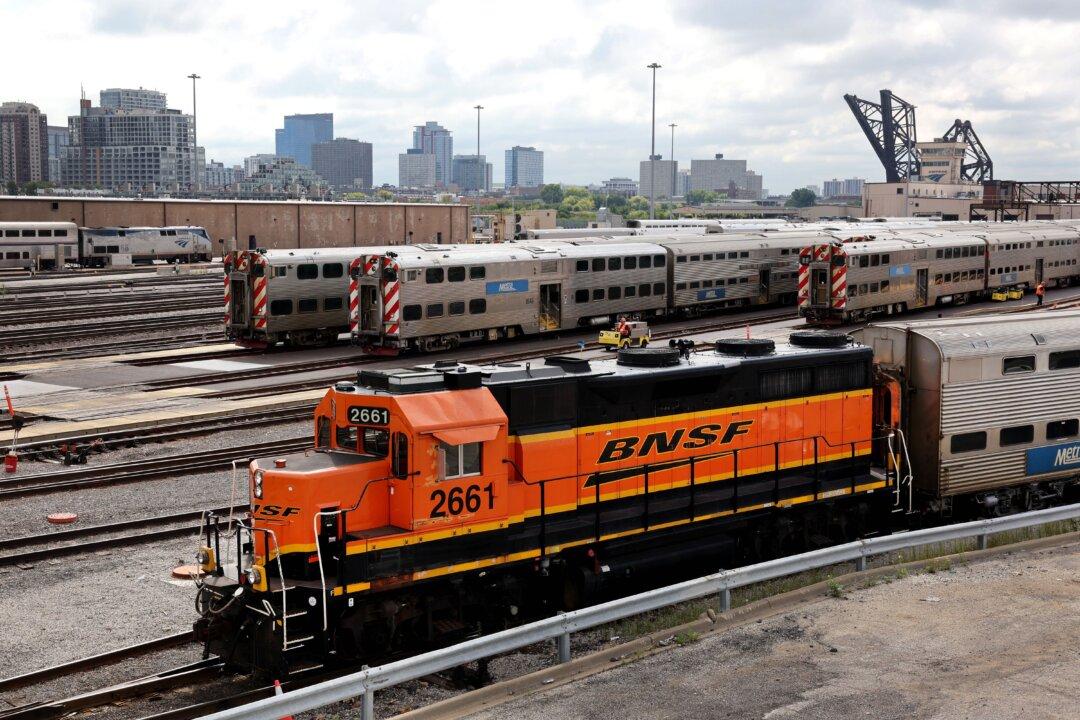Congressional Democrats are facing tough calls over an impending strike of rail workers, which observers fear could cause an economic catastrophe for the United States’ already strained supply chain.
Railroad workers’ unions and major U.S. railroad services over the past several weeks have been involved in negotiations over wages and the railroads’ strict attendance policies, which limit workers from taking sick days.





